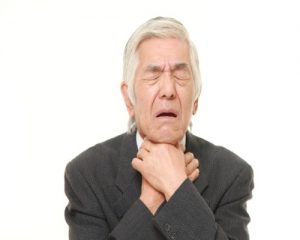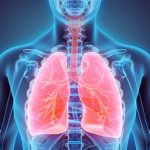 The last seven days of October are a time to celebrate Respiratory Care Week. The AARC: American Association for Respiratory Care (AARC) and the Nebraska Society for Respiratory Care (NSRC) encourage therapists and departments to organize events and festivities to celebrate, motivate, educate, inspire, and learn about recognizing and improving lung health.
The last seven days of October are a time to celebrate Respiratory Care Week. The AARC: American Association for Respiratory Care (AARC) and the Nebraska Society for Respiratory Care (NSRC) encourage therapists and departments to organize events and festivities to celebrate, motivate, educate, inspire, and learn about recognizing and improving lung health.
We at Bel Marra feel we have to do our part, so we have compiled a list of your best articles dealing with respiratory health and disease.
Bronchitis home remedies: Natural treatment and prevention
Advertisement
Bronchitis is characterized by shortness of breath and a cough that can wake up the neighborhood, but the good news is, it can be treated with natural remedies.
When inflammation occurs in the lining of the bronchial tubes, it can lead to bronchitis. Bronchitis can be acute or chronic, and can have the patient coughing up a thick mucus. Acute bronchitis is treatable, but chronic bronchitis means it will most likely return. Whether you have the acute or chronic bronchitis, we’re here to shed some light on a few natural home remedies for bronchitis. Continue reading…
 COPD differences: Emphysema vs. chronic bronchitis
COPD differences: Emphysema vs. chronic bronchitis
Emphysema and chronic bronchitis are two forms of chronic obstructive pulmonary disease (COPD). Both conditions are life-long and lead to permanent lung complications, which leads to difficulties with breathing.
There are many similarities between emphysema and chronic bronchitis, but they also have very notable differences that distinguish them from one another.
Emphysema results from a gradual destruction of the air sacs in the lungs, which hinders breathing. These sacs, known as alveoli, are responsible for providing oxygen to the bloodstream. With the destruction of alveoli elasticity, the pulmonary airways become reduced, leading to shortness of breath and difficulty breathing. Continue reading…
 Bradypnea: What causes abnormally slow breathing and how to treat it
Bradypnea: What causes abnormally slow breathing and how to treat it
Bradypnea is the medical term for a reduced rate of breathing. The criteria for this is when a person’s breathing rate is less than 12 breaths per minute. Bradypnea can be due to a number of underlying reasons or medical conditions, or it can even occur during a normal sleep. However, if bradypnea occurs while you’re still awake, it can be a sign of certain conditions that are disrupting your breathing.
Normally, your breathing pattern is controlled by the brain, while you’re unaware of the number of breaths you take. If something were to compromise this process, it can lead to an unusually low rate of respiration. Continue reading…
Walking pneumonia vs. pneumonia, differences in symptoms, causes, and treatment
Atypical pneumonia, also known as walking pneumonia, is a form pneumonia, an infection of the lung, although there are important distinctions between the two varieties to keep in mind.
Back in the 1930s, pneumonia was actually the leading cause of death. Thanks to the modern medicine, most people under the age of 65 nowadays can endure pneumonia without any significant repercussions. Pneumonia is typically caused by infections and leads to the inflammation of the lungs. The air sacs in the lung fill with fluid, making it difficult to move oxygen to the bloodstream – and to breathe.
Advertisement
Walking pneumonia (atypical pneumonia) is a type of pneumonia, an illness that affects the upper and lower respiratory tract. It is dubbed ‘walking’, because many patients don’t even realize they have the condition because their daily living is not affected. Walking pneumonia does not involve hospitalization or bed rest as other types of pneumonia do, but still requires treatment to prevent complications. Continue reading…
 Preventing pneumonia in elderly: How to boost the immune system
Preventing pneumonia in elderly: How to boost the immune system
Pneumonia is a preventable condition, but you need a strong immune system to resist the infection. Pneumonia is inflammation of the lung tissue caused by a virus, bacteria, or fungus. It may be contagious if caused by an infectious microbe. But if it is caused by chemical fumes or other poisons, then it is not contagious.
As we age, the risk of pneumonia increases, because our immune system becomes weaker, so it is less successful in fighting off illness. Let’s examine the causes of pneumonia in the elderly and look at some ways to boost our immune system naturally to better prevent pneumonia. Continue reading…

